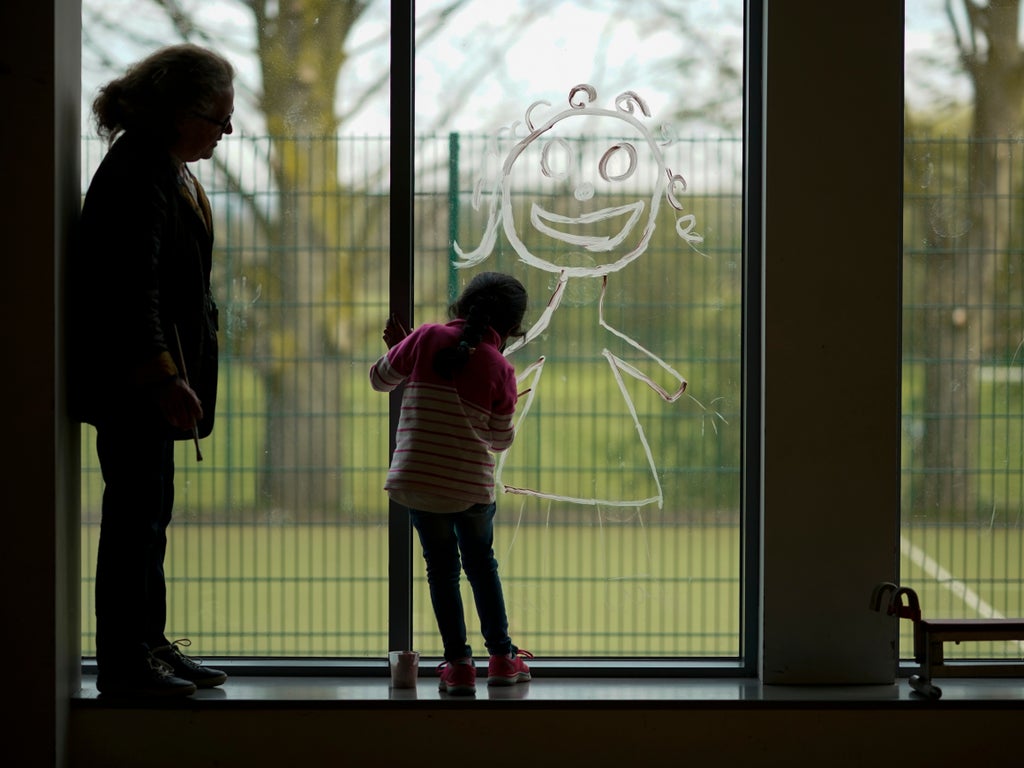
Government health officials are concerned that tens of thousands of children have not returned to school almost one year after classrooms first reopened, leaving them vulnerable to “falling below the radar and getting lost in the system”.
Around 100,000 children failed to return to the classroom last spring following the mass reopening of schools, The Independent has been told, with scientific advisers to Downing Street concerned that these high rates of absenteeism are still continuing to this day.
All schools were shut after Covid-19 first emerged in the spring of 2020, while there were mass closures throughout the UK during the lockdown of winter 2021. Classrooms eventually began to reopen from March last year.
As part of its wider work into child vaccine programmes, the Joint Committee on Vaccination and Immunisation is understood to have recently explored the factors at play in keeping children at home.
“We have looked at this and the answers are complex,” one JCVI member told The Independent. “There a vast number of reasons why kids can’t attend or haven’t returned to school, with increasing numbers of them falling below the radar and getting lost in the system.”
Covid-19 is continuing to have a clear impact on children’s health and well-being, with cases running at historically high levels.
The JCVI member said that self-isolation, illness from long Covid and the fear of bringing the virus back from the classroom into clinically vulnerable families were keeping some children at home.
“A significant number” of people, young and old, who were told to shield over the past two years are “still doing so now”, they added – even though the shielding programme ended in England on 15 September 2021.
Dr Deepti Gurdasani, an epidemiologist at Queen Mary University London, said that children knowing they’ve had Covid, and who then infect other members of their family, leading to serious illness and even death, will have had “significant mental health impacts”.
It is thought that up to one in seven children who have caught Covid may have symptoms linked to the virus 15 weeks later, research from University College London (UCL) shows.
Close to 100,000 children aged five to nine were infected in the week ending 19 January, according to government data. In line with the UCL estimates, 6,600 of those will go on to develop long Covid.
Separate data from the Office for National Statistics suggests that 20,000 children in the UK have suffered from the condition for more than a year.
The JCVI member also said that some children were scared of leaving home and attending school due to domestic matters. They may try to “protect one parent from another,” the scientific adviser said. “Or are protecting or caring for a vulnerable parent, for example, with substance abuse issues.”
The adviser pointed to a surge in at-home drinking during Britain’s lockdowns, the consequence of which has been fatal. Deaths caused by alcohol in 2020 increased by almost 19 per cent, marking the biggest rise since records began in 2001, according to the ONS.
Worsening domestic habits such as these have placed an increased burden on children, both physically and mentally, the JCVI insider said, adding that children with special educational needs and disabilities have also struggled to access proper support through the pandemic and have grown fearful of school and the prospect of bullying.
“It is an entire generation of people damaged by a pandemic without necessarily being infected,” the JCVI source said.
Another reason why children stay off school is the simple fact that “they are ill and can’t cope mentally or physically [in the] long term or short term,” they added.
Russell Viner, a professor in adolescent health at UCL and scientific adviser to the government, said it was a “major concern” that some children had yet to return to the classroom. “We know that schools and being at school are very important for children’s health and well-being,” he said.
Dr Gurdasani said that education has never been a priority during the UK’s approach to Covid. “If it was, the government would’ve acted on evidence, as many other countries did, to mitigate risk and vaccinate children to reduce disruption and the impact to children’s and families’ health – both physical and mental,” she added.
A DfE spokesperson said “avoidable” school absences had increased during the pandemic and that the government had “already taken steps to understand and tackle” it.
“We have established an attendance alliance of leading experts, including the Children’s Commissioner and Ofsted Chief Inspector, to tackle barriers to school attendance, and our attendance advisers are working with councils and trusts to help manage local attendance issues.”







